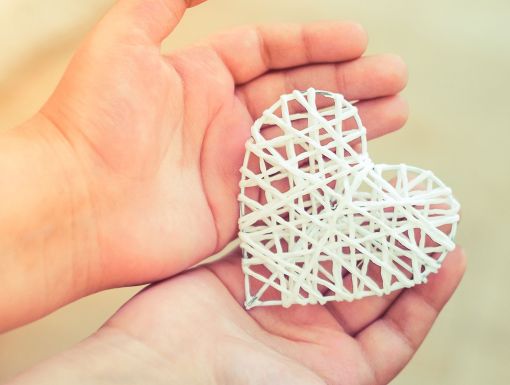
Top Five Facts About Organ Donation and How You Can Save Lives
Organ donation is one of the greatest gifts you can give, with the power to save up to nine lives and improve the quality of life for up to 75 others through tissue and cornea donation. Despite this incredible impact, myths and misunderstandings often prevent people from registering as donors or exploring living donation opportunities. By understanding the facts about organ donation, you can make informed decisions and inspire others to give the gift of life.
1. Who can be an organ donor?
Anyone, regardless of age or medical history, can register to be an organ donor. Doctors evaluate the condition of a person’s organs and tissues at the time of death to determine whether donation is possible. Even individuals with medical conditions such as HIV, hepatitis C, or past cancer diagnoses may still donate organs to suitable recipients.
Age is also not a limitation. The health and functionality of the organs at the time of donation are far more important than age. For example, the oldest known organ donor in the U.S. was 93 years old.
2. Religious views on organ donation
Most major religions in the United States view organ donation as a compassionate and selfless act of generosity. Leaders from many faiths, including Christianity, Islam, Judaism, and Buddhism, encourage their followers to consider donation as a way to help others.
3. How are organs allocated?
The allocation of donated organs is managed by the United Network for Organ Sharing (UNOS), which prioritizes candidates based on factors like medical urgency, blood type, location, and wait time. Social status, wealth, or fame play no role in determining who receives a transplant.
4. What are the costs associated with organ donation?
There is no cost to the donor or their family for organ and tissue donation. All medical expenses related to the donation process are covered by the organ procurement organization.
5. Open-casket funerals are still possible
Donation does not prevent the option of an open-casket funeral. Donors are treated with utmost care and respect throughout the entire process.
Living kidney and living liver organ donations at Ochsner
For individuals considering giving the gift of life while still alive, living organ donation offers a unique opportunity. Through Ochsner Health's living donor kidney and living donor liver transplant programs, donors can save lives even sooner, bypassing the long wait times often associated with deceased organ donation.
Living kidney donation
You only need one kidney to live a healthy life, which makes it possible to donate your second kidney to someone in need. Living kidney donation has several significant advantages:
- Shortened wait times: Recipients don’t have to endure the years-long wait on the transplant list. For those with end-stage renal disease, this dramatically improves outcomes and quality of life.
- Healthier transplant outcomes: Kidneys from living donors function better and last longer than those from deceased donors.
- Planned surgery: Donors and recipients can schedule the surgery at a mutually beneficial time, ensuring both parties are in optimal health.
Anyone in good overall health who is at least 18 years old can potentially be a living kidney donor. Conditions like well-controlled diabetes or high blood pressure may not disqualify you, but donors must undergo thorough medical evaluations.
The donation process is typically performed through minimally invasive robotic surgery, allowing for a shorter recovery time. Most donors return to everyday activities within four weeks.
Living liver donation
The liver is an extraordinary organ with the ability to regenerate. Living liver donation involves transferring a portion of the donor’s liver to a recipient, with both the donor’s and recipient’s livers regenerating to full size within a few weeks.
Living liver transplants come with several benefits:
- Reduced wait times: Patients can avoid the risks associated with long waiting periods.
- Better outcomes: Recipients of living-donor livers often experience quicker recoveries and fewer complications.
- Life-saving benefits: For patients with urgent liver conditions, living donation can be the key to survival.
To become a living liver donor, you must be in excellent health and meet specific requirements, including a compatible blood type with the recipient. The donor undergoes rigorous evaluations to ensure safety and the best possible outcomes for both the donor and recipient.
The importance of registering as a donor
Registering as an organ donor or participating in living donation has the power to change lives—not only for recipients but also for their families and communities. Your decision could bring hope to someone on the waiting list or save a parent, child, or friend from organ failure.
How can you register as an organ donor?
Becoming a registered organ donor is easy. You can sign up through your state’s donor registry or indicate your decision when applying for or renewing your driver’s license.
How can you register as a living organ donor?
The first step to become a living organ donor is to complete an online health history questionnaire for liver and kidney donations. This helps the Ochsner Transplant Institute gather essential information about your medical and surgical history, medications, and lifestyle. Certain conditions, such as diabetes, obesity, cancer, or heart disease, may prevent donation, but every case is assessed individually.
Once your questionnaire is submitted, it will be reviewed by a living donor coordinator. If you're a potential candidate, you'll receive a call to discuss the next steps.
Next, if you're donating to a specific recipient, a blood test will determine if your blood type is compatible and how the recipient’s body may react to your organ. If you aren’t a match, Ochsner offers paired exchange programs, allowing donors and recipients to swap with other matching pairs.
Finally, if a match is confirmed, you'll undergo a thorough medical evaluation lasting one to two days. This includes tests to assess the health of your organ, heart, lungs and overall well-being. You'll meet with Ochsner’s transplant team, who will answer your questions and ensure you’re fully prepared. Only donors who meet strict health and safety criteria will proceed to donation.
Organ donation is more than a medical process; it’s a testament to the power of generosity and human connection. By choosing to be a donor, you become a beacon of hope for those whose lives depend on this priceless gift.


